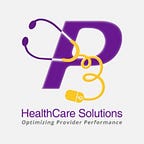Recognizing Non-Patient Facing Status: Fears, Goals, and Solutions for Healthcare Practitioners
In the complex landscape of healthcare, a myriad of roles contribute to patient care and the overall functionality of medical facilities. Among these roles, the designation of “Non-Patient Facing” has emerged, offering unique challenges and opportunities for healthcare practitioners, including doctors, nurses, surgeons, and others. Understanding this status, along with the fears, goals, and solutions associated with it, is crucial for healthcare professionals navigating their careers. At P3 Healthcare Solutions, we are dedicated to providing medical credentialing services and healthcare billing services in the USA, supporting practitioners in every step of their professional journey.
The Non-Patient Facing Status Explained
Non-Patient Facing (NPF) status refers to healthcare practitioners who do not engage directly with patients but instead work in roles that support patient care indirectly. This includes administrative roles, research, telemedicine, and various other functions that ensure the smooth operation of healthcare facilities. While these positions are vital, they come with their own set of challenges and concerns.
Fears Associated with Non-Patient Facing Roles
Professional Identity and Recognition
One significant fear among healthcare practitioners in NPF roles is the potential loss of professional identity and recognition. Direct patient care is often seen as the core of medical practice, and those in NPF roles might feel their contributions are undervalued. This perception can lead to concerns about career advancement and peer recognition.
Job Security
Another common fear is job security. With the rapid advancements in technology and changing healthcare regulations, practitioners in NPF roles may worry about their positions becoming redundant or undervalued. This is particularly pertinent in areas like medical billing and coding, where automation is increasingly prevalent.
Impact on Skill Set
Healthcare practitioners might also fear that being in an NPF role could lead to a decline in their clinical skills. The constant evolution of medical practices necessitates continuous learning and hands-on experience. Those away from direct patient care might feel disconnected from these advancements, potentially impacting their ability to return to patient-facing roles if they choose to do so.
Goals of Healthcare Practitioners in Non-Patient Facing Roles
Professional Development
Despite the fears, practitioners in NPF roles have clear goals aimed at professional development. They seek opportunities for continuous education and skill enhancement to stay relevant in their fields. This includes obtaining certifications and attending workshops that can broaden their knowledge base and expertise.
Career Advancement
Career advancement remains a primary goal. Healthcare practitioners in NPF roles aspire to climb the professional ladder, seeking positions of greater responsibility and influence. This could mean moving into higher administrative roles, leadership positions, or even transitioning back to patient-facing roles with added managerial experience.
Contribution to Healthcare Quality
A significant goal is contributing to the overall quality of healthcare. Those in NPF roles understand the critical importance of their work in improving patient outcomes indirectly. Whether through efficient medical billing, research that informs clinical practices, or administrative support that ensures smooth hospital operations, their aim is to enhance the healthcare system as a whole.
Solutions and Support for Non-Patient Facing Healthcare Practitioners
Continuous Education and Training
One of the primary solutions to address the fears of NPF practitioners is continuous education and training. By offering regular workshops, seminars, and online courses, healthcare organizations can ensure that these professionals stay updated with the latest industry trends and skills. This not only helps in maintaining their competence but also boosts their confidence in their roles.
Recognition and Appreciation
To combat the fear of undervaluation, healthcare organizations should implement systems that recognize and appreciate the contributions of NPF practitioners. This can be through awards, public acknowledgments, or career development programs that highlight their importance. Such initiatives can foster a sense of belonging and professional pride.
Technological Integration and Support
With the fear of job redundancy due to automation, it is essential to integrate technology in a way that supports rather than replaces NPF roles. Providing training on new technologies and demonstrating how these tools can enhance their efficiency and effectiveness can alleviate fears and open up new opportunities for career growth.
Mentorship and Career Counseling
Offering mentorship and career counseling can help NPF practitioners navigate their career paths more effectively. Experienced mentors can provide guidance on professional development, help identify potential career opportunities, and support practitioners in achieving their long-term goals.
Watch the video: Check Out Who Got the Non-Patient Facing Special Status
The Role of P3 Healthcare Solutions
At P3 Healthcare Solutions, we understand the unique challenges faced by healthcare practitioners in non-patient facing roles. Our medical credentialing services ensure that practitioners are recognized and validated for their skills and expertise, regardless of their direct patient interaction. Moreover, our healthcare billing services streamline administrative processes, allowing practitioners to focus on their professional growth and contribution to healthcare quality.
We believe in empowering healthcare professionals by providing the necessary tools and support to excel in their roles. Our commitment to continuous education, technological integration, and professional recognition aims to create a supportive environment for all healthcare practitioners.
Read more: The Vital Importance of Credentialing for Healthcare Providers
For more information on how we can support your career in healthcare, contact us today.
Call us at: (844) 557–3227
Address: 3200 E Guasti Rd Suite 100, Ontario, CA 91761, United States
Visit our website: www.p3care.com
